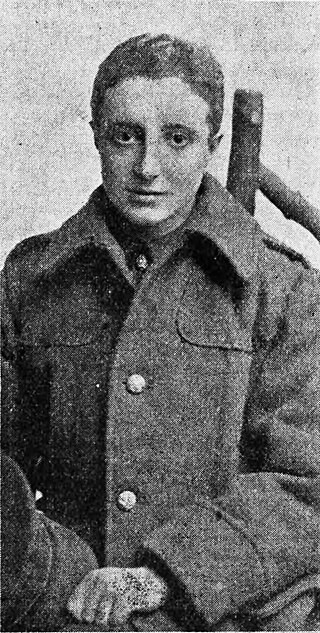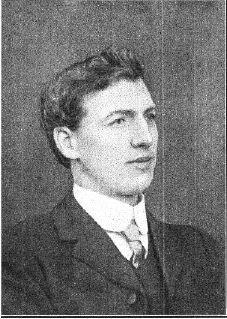Related Research Articles

Saunders Lewis was a Welsh politician, poet, dramatist, Medievalist, and literary critic. Born into a Welsh-speaking ministerial family in Greater Liverpool, Lewis studied in a public school growing up. He rediscovered the importance of both his heritage language and cultural roots while serving as a junior officer in the British Army during the trenches of the First World War. As a vocal supporter of Welsh nationalism, Lewis believed, however, that heritage language revival, cultural nationalism and the decolonisation of Welsh-language literature, the dramatic arts, and culture needed to precede Welsh devolution or political independence. Otherwise, as Lewis predicted in 1918, "the Welsh Parliament would [only] be an enlarged County Council."

Loretto is a borough in Cambria County, Pennsylvania, United States. As of the 2010 census it had a population of 1,302. Like the rest of Cambria County, it is part of the Johnstown, Pennsylvania, Metropolitan Statistical Area. Loretto is the home of Saint Francis University.

Máiréad "Peig" Sayers was an Irish author and seanchaí born in Dún Chaoin, County Kerry, Ireland. Seán Ó Súilleabháin, the former Chief archivist for the Irish Folklore Commission, described her as "one of the greatest woman storytellers of recent times".

In Welsh culture, an eisteddfod is an institution and festival with several ranked competitions, including in poetry and music. The term eisteddfod, which is formed from the Welsh morphemes: eistedd, meaning 'sit', and fod, meaning 'be', means, according to Hywel Teifi Edwards, "sitting-together." Edwards further defines the earliest form of the eisteddfod as a competitive meeting between bards and minstrels, in which the winner was chosen by a noble or royal patron.
The modern Celts are a related group of ethnicities who share similar Celtic languages, cultures and artistic histories, and who live in or descend from one of the regions on the western extremities of Europe populated by the Celts.
Morgan John Rhys, also Rhees was a Welsh radical evangelical Baptist minister. He preached the principles of the French Revolution, against slavery, and in favour of the reform of parliament.

Pan-Celticism, also known as Celticism or Celtic nationalism is a political, social and cultural movement advocating solidarity and cooperation between Celtic nations and the modern Celts in Northwestern Europe. Some pan-Celtic organisations advocate the Celtic nations seceding from the United Kingdom and France and forming their own separate federal state together, while others simply advocate very close cooperation between independent sovereign Celtic nations, in the form of Breton, Cornish, Irish, Manx, Scottish, and Welsh nationalism.
Yale College, Wrexham is now part of Coleg Cambria.
Awen is a Welsh, Cornish and Breton word for "inspiration".
Mabou is an unincorporated settlement in the Municipality of the County of Inverness on the west coast of Cape Breton Island, Nova Scotia, Canada. The population in 2011 was 1,207 residents. It is the site of The Red Shoe pub, Beinn Mhàbu, the An Drochaid Museum, and Glenora Distillers

Welsh Americans are an American ethnic group whose ancestry originates wholly or partly in Wales, United Kingdom. In the 2008 U.S. Census community survey, an estimated 1.98 million Americans had Welsh ancestry, 0.6% of the total U.S. population. This compares with a population of 3 million in Wales. However, 3.8% of Americans appear to bear a Welsh surname.

Welsh settlement in the Americas was the result of several individual initiatives to found distinctively Welsh settlements in the New World. It can be seen as part of the more general British colonization of the Americas.

Evan John Roberts was a Welsh evangelist and leading figure of the 1904–1905 Welsh revival.

Cornish kilts and tartans are thought to be a modern tradition started in the early to mid 20th century. The first modern kilt was plain black, and other patterns followed. It is documented that a garment known as a bracca was worn by Celtic people. yet the term Celtae/Galatae was an ethonym of the Gallic peoples according to Greeks and Romans, whom shared a common language route with the what is termed Insular Celtic people in academia. who inhabited the British Isles, the term indicating its appearance. The Welsh word brech means 'checkered', and the word bracca is derived from the Welsh or Cornish word brythen which in English translates as 'striped' or 'checkered'.
Pêr-Jakez Helias, baptised Pierre-Jacques Hélias, nom de plumePierre-Jakez Hélias (1914–1995) was a Breton stage actor, journalist, author, poet, and writer for radio who worked in the French and Breton languages. For many years he directed a weekly radio programme in the Breton language and co-founded an Eisteddfod-inspired summer festival at Quimper which became the Festival de Cornouaille.
John Kennall (1511–1592) was Archdeacon of Oxford and a noted pluralist.
Frederick William Gibbins was a Welsh businessman and Liberal Party politician.
Common Brittonic, also known as British, Common Brythonic, or Proto-Brittonic, is an extinct Celtic language spoken in Britain and Brittany.
Robyn Léwis was a Welsh author, politician and former archdruid of the National Eisteddfod of Wales.
Iain mac Mhurchaidh, alias John MacRae, was a Scotland-born bard from Kintail, a member of Clan Macrae, and an early immigrant to the Colony of North Carolina. MacRae has been termed one of the "earliest Scottish Gaelic poets in North America about whom we know anything."
References
- ↑ Marcus Tanner (2004), The Last of the Celts, Yale University Press. Page 325.
- ↑ Marcus Tanner (2004), The Last of the Celts, Yale University Press. Page 325.